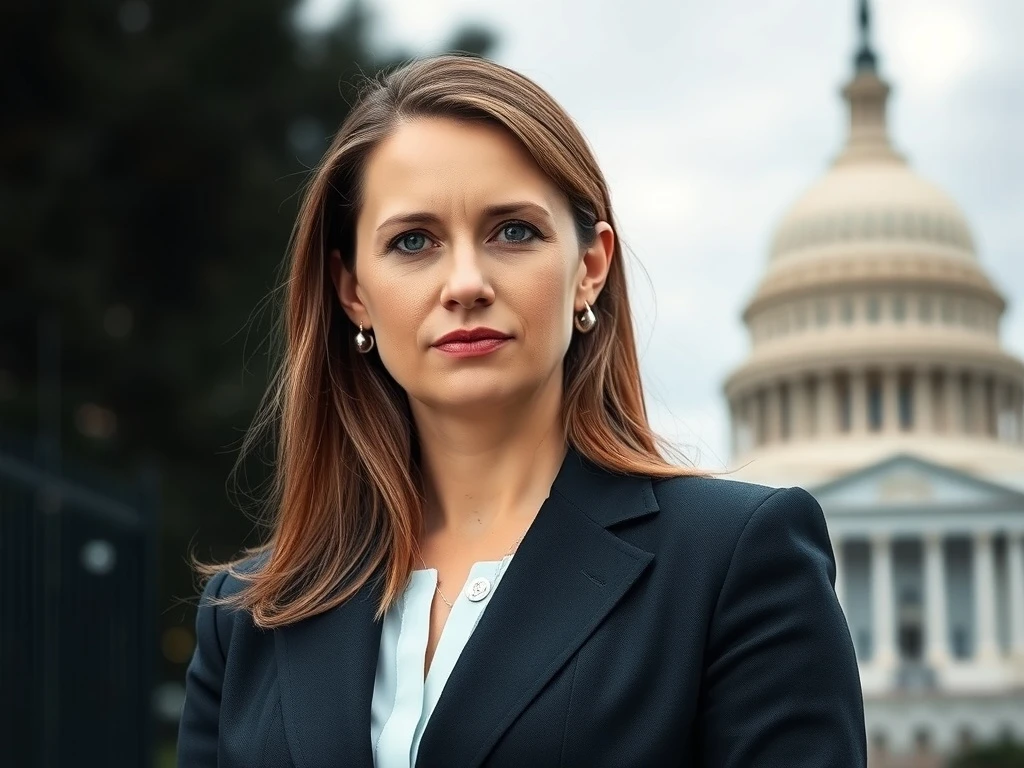Critical: CFTC Commissioner Johnson’s Departure Impacts Crypto Regulatory Clarity

The landscape of digital asset oversight faces a significant shift. CFTC Commissioner Johnson’s confirmed departure next week sends ripples through the industry. This move creates new challenges for the Commodity Futures Trading Commission (CFTC) as it navigates the complex world of crypto regulation. Stakeholders now watch closely for the implications of this change.
CFTC Commissioner Johnson’s Legacy and Imminent Departure
Kristin Johnson, the last remaining Democrat commissioner at the CFTC, confirmed her resignation. She will officially leave the regulator on Wednesday, September 3. Earlier this year, Johnson indicated she would depart before her term concluded in 2026. Her statement on Tuesday reflected a sense of honor and privilege. She described her time as a financial market regulator as inspiring. Johnson expressed a desire to find new ways to serve customers, markets, and the nation.
During her tenure, Johnson championed several key initiatives. She focused on evaluating cyber threats. She also worked on integrating artificial intelligence into financial markets. These areas represent high points of her service at the CFTC. Johnson joined the commission in March 2022. Former US President Joe Biden nominated her to the post. Her contributions emphasized a forward-looking approach to market integrity.
Profound Implications for Crypto Regulation and Stability
Johnson’s exit creates immediate concerns for the trajectory of crypto regulation. The CFTC currently grapples with significant commissioner vacancies. This situation could slow its critical work in overseeing the digital asset market. Johnson consistently advocated for a robust framework for cryptocurrencies. She believed accountability and oversight were paramount. Furthermore, she stressed that the commission could prioritize growth. Simultaneously, it must protect market stability and customers from fraud.
She articulated this philosophy clearly: “Sustainable growth depends on, or better stated, is built upon a regulatory framework that ensures markets remain resilient in the face of volatility, uncertainty, and stress.” Johnson emphasized that growth and market integrity are not conflicting goals. There is no true opposition between advancing growth potential and preserving market stability or integrity. Her departure leaves a void in this balanced perspective.
US Financial Regulators Face Unprecedented Vacancies
The CFTC panel faces a nearly empty roster following Johnson’s departure. This leaves only acting CFTC Chair Caroline Pham at the helm. However, Pham also plans to leave once Brian Quintenz, President Donald Trump’s nominee, receives confirmation. This situation creates significant instability for one of the leading US financial regulators. The commission requires five commissioners to function optimally. No more than three can belong to the same political party.
The current state is far from this ideal. Former CFTC Chair Rostin Behnam resigned in January. Summer Mersinger and Christy Goldsmith Romero stepped down in May. Goldsmith Romero voiced concerns in May. She stated the exodus of top brass was “not a great situation” for crypto regulations. This situation leads to a less diverse pool of opinions. Such a lack of diverse viewpoints could hinder comprehensive regulatory development. It might also slow down essential rulemaking processes.
The Critical Need for Regulatory Clarity Crypto
Both the CFTC and the Securities and Exchange Commission (SEC) handle specific regulatory and enforcement issues related to crypto. Congressional Republicans actively pursue legislation. They aim to grant the CFTC greater oversight over the sector. The CFTC launched its first “crypto sprint” statement on August 1. It pledged to collaborate closely with the SEC. Their goal was to establish a clear rulemaking process. They also committed to using existing authorities to provide comprehensive regulatory clarity crypto. A single commissioner can still advance rulemakings. They can also oversee all Commission activities under the Commodity Exchange Act. However, a fully staffed commission provides more robust and balanced decision-making.
Stalled Nominations and Persistent CFTC Vacancies
The confirmation of Brian Quintenz, Trump’s pick for CFTC chair, remains uncertain. The White House intervened in late July. It postponed a Senate vote on his nomination. This delay exacerbates the issue of CFTC vacancies. Several crypto advocacy groups have urged Quintenz’s confirmation. They argue that a permanent chair is crucial. Such leadership is essential for the commodities regulator to achieve its crypto goals. An August report introduced further complications. It suggested Gemini co-founders Cameron and Tyler Winklevoss pressured Trump. They reportedly sought reconsideration of Quintenz’s nomination. They claimed he would not fully enact the president’s crypto agenda as CFTC chair. Quintenz previously served as a CFTC commissioner under Trump from 2017 to 2021. Former US President Obama nominated him in 2016.
The ongoing uncertainty surrounding leadership appointments significantly impacts the CFTC’s effectiveness. This directly affects its ability to provide stable and predictable oversight for the rapidly evolving digital asset space. The need for a complete and diverse panel of commissioners is more pressing than ever. This will ensure that the CFTC can fulfill its mandate of fostering growth while protecting markets and consumers.







